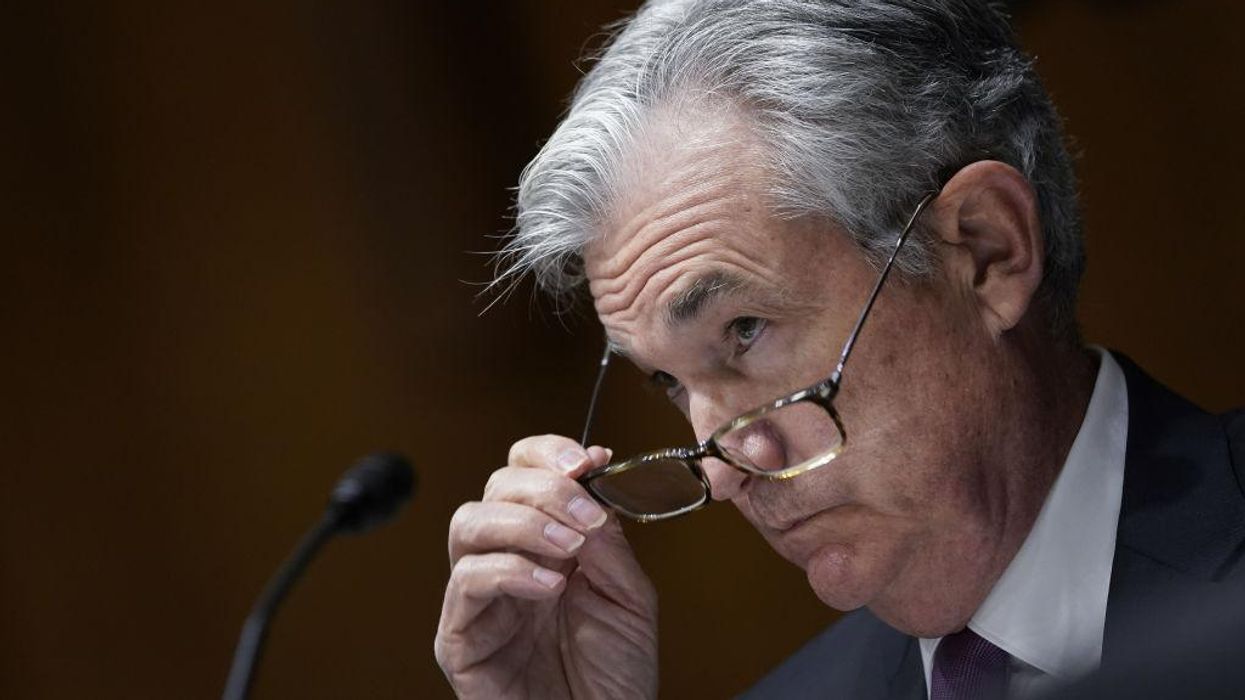
Photo by Drew Angerer/Getty Images

On Friday at the Kansas Federal Reserve's Jackson Hole symposium in Wyoming, Jerome H. Powell, chairman of the Federal Reserve, indicated that the Fed would continue raising interest rates in hopes of precluding price increases from becoming permanent. The intimation that interest rates will continue to go up triggered share prices around the world to dip.
In his speech, Powell suggested the forces that will ultimately bring down the present decades-high inflation — "higher interest rates, slower growth, and softer labor market conditions" — are "unfortunate costs" that will "bring some pain to households and businesses." Nevertheless, he argued, "a failure to restore price stability would mean far greater pain."
Powell cautioned that "reducing inflation is likely to require a sustained period of below-trend growth" and that interest rates will remain at levels that will slow the economy "for some time."
Kathy Jones, the chief fixed-income strategist at the Schwab Center for Financial Research, explained the result of higher interest rates to the New York Times thusly: "By raising rates, the Fed is trying to make you slow down your spending. That happens when the cost of money goes up for a car loan or mortgage or something else you want to spend money on. At some point, you’re going to pull back."
By reducing Americans' buying power, the Fed is prompting consumers to buy less. Less demand might allow for supply to catch up and price increases to slow down.
In its last four meetings, the Fed rapidly lifted interest rates by two whole percentage points, from near zero in March to within a range of 2.25% to 2.5%, to deal with inflation, which in the neighborhood of 8.5%.
Powell did not specify in his speech how large a rate hike the Fed will announce at its September meeting or how long the rates will remain at these levels.
Whereas Atlanta Fed President Raphael Bostic said he favors a 50-basis-point hike at the Fed's next meeting, in his speech, Powell referenced his July statement that another 75-basis-point increase "could be appropriate at our next meeting."
Some believe the Fed's "forceful and rapid steps to moderate demand" may result in a recession.
Neil Dutta, head of U.S. economics at Renaissance Macro Research, suggested the "likelihood of recession is rising, because that's the solution to the inflation problem."
Desmond Lachman, an economist and senior fellow at the American Enterprise Institute, wrote on Wednesday that the "Fed is maintaining this hawkish posture even though the economy has contracted in two successive quarters" while "turning a blind eye to the strong deflationary forces emanating from abroad as a result of the rapidly deteriorating state of the world economy."